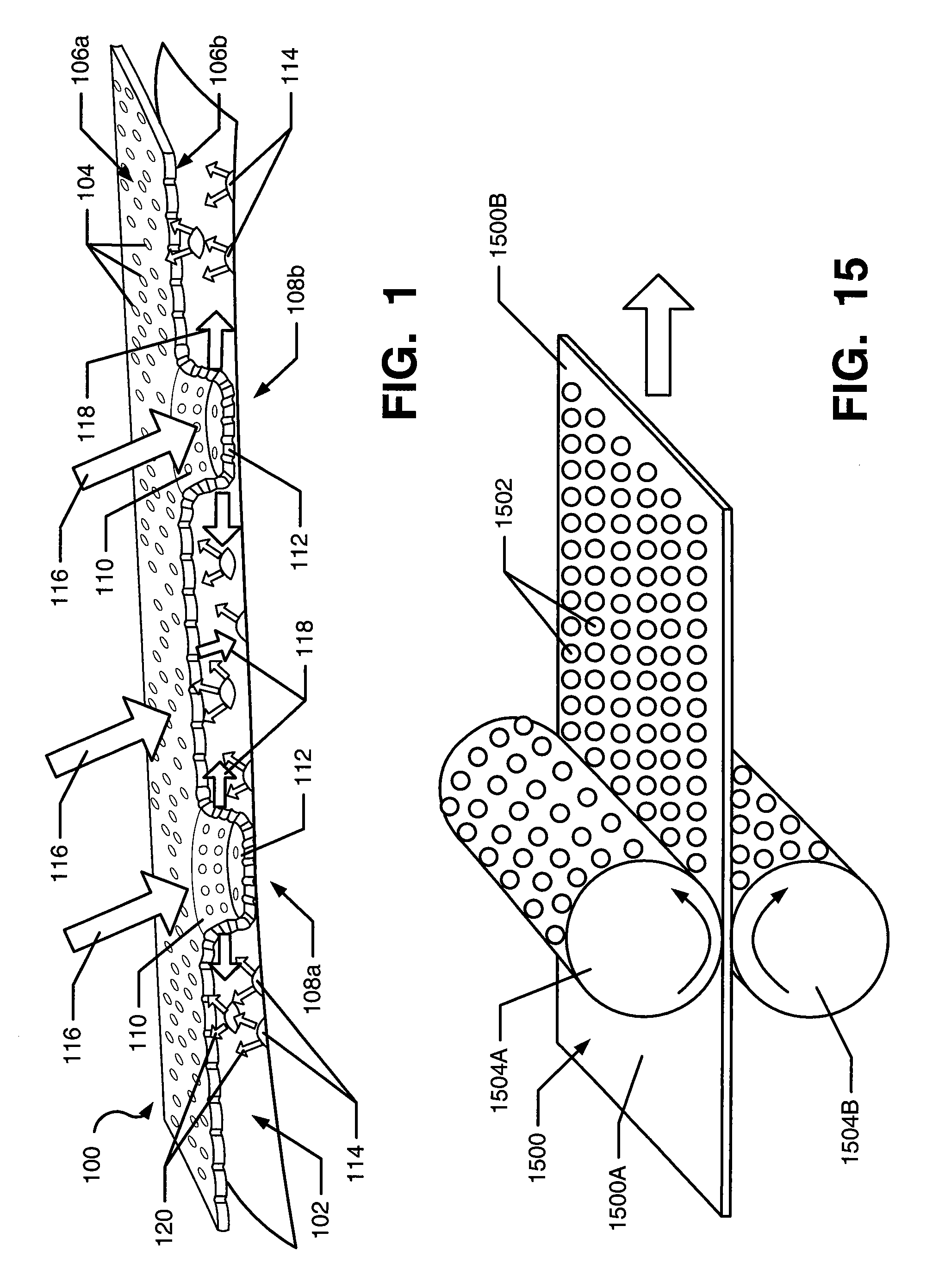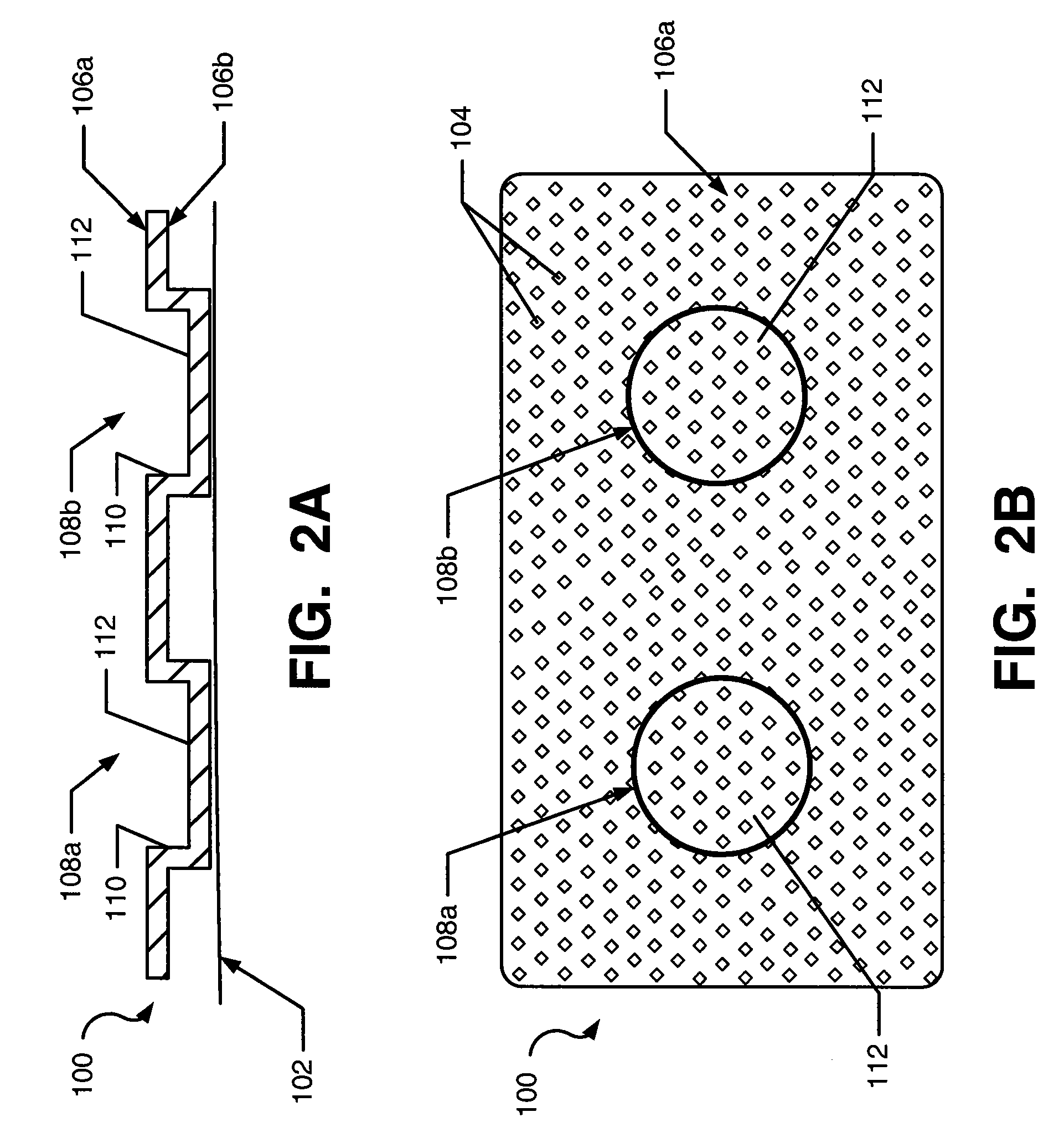Fabrics and articles of apparel including dimensionalized mesh and other fabrics
- Summary
- Abstract
- Description
- Claims
- Application Information
AI Technical Summary
Benefits of technology
Problems solved by technology
Method used
Image
Examples
Embodiment Construction
[0017]Various specific examples of the invention are described in detail below in conjunction with the attached drawings.
I. General Description of Aspects of the Invention
[0018]A. Fabrics and Garments in Accordance with Example Aspects of this Invention
[0019]In general, at least some example aspects of this invention relate to fabrics and garments that have “dimensionalized” structures. Fabrics according to at least some examples of this invention include: (a) a fabric material that defines or forms a fabric base level; and (b) a plurality of self-standing fabric surface modifying elements integrally formed in the fabric material, wherein at least some of the fabric surface modifying elements define a fabric contact level different from the fabric base level. In at least some more specific examples of this invention, the fabric material may define a first major surface and a second major surface opposite the first major surface, and the plurality of self-standing fabric surface modi...
PUM
| Property | Measurement | Unit |
|---|---|---|
| Force | aaaaa | aaaaa |
| Size | aaaaa | aaaaa |
| Flexibility | aaaaa | aaaaa |
Abstract
Description
Claims
Application Information
 Login to View More
Login to View More - R&D
- Intellectual Property
- Life Sciences
- Materials
- Tech Scout
- Unparalleled Data Quality
- Higher Quality Content
- 60% Fewer Hallucinations
Browse by: Latest US Patents, China's latest patents, Technical Efficacy Thesaurus, Application Domain, Technology Topic, Popular Technical Reports.
© 2025 PatSnap. All rights reserved.Legal|Privacy policy|Modern Slavery Act Transparency Statement|Sitemap|About US| Contact US: help@patsnap.com



